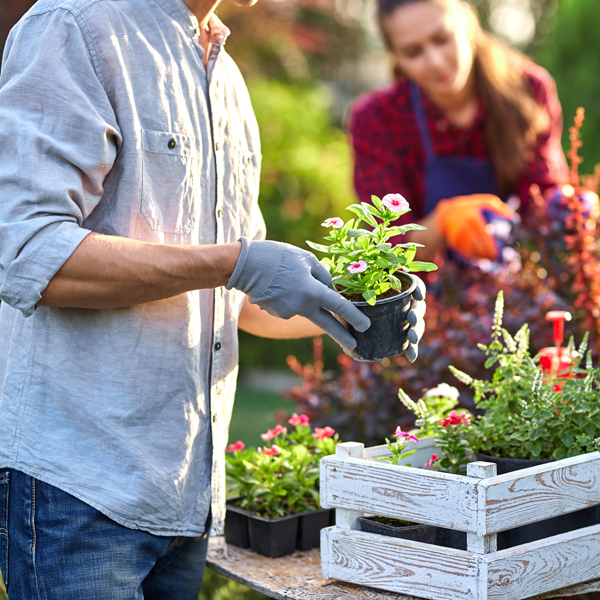Important Gardening Tools Every Gardener Needs for a Beautiful Garden
Recognizing the Different Kinds Of Horticulture and How They Add to a Much Healthier Lifestyle and Setting
:max_bytes(150000):strip_icc()/close-up-of-a-women-watering-vegetables-in-a-raised-bed-1407277094-c63fd1ff0a21406ebf17c51ac6c6f2d1.jpg)
Advantages of Veggie Horticulture
Lots of individuals are increasingly recognizing the myriad advantages of vegetable horticulture as an essential component of a much healthier way of life. Engaging in veggie horticulture supplies many physical health benefits, including increased exercise, which improves cardiovascular health and wellness and advertises total fitness. The act of planting, weeding, and harvesting needs motion and can help battle sedentary actions, contributing to weight monitoring and improved muscle mass tone.
In addition, growing one's very own veggies significantly enhances dietary high quality. Homemade fruit and vegetables is often fresher and extra nutrient-dense contrasted to store-bought alternatives, as it can be taken in soon after harvest. This access urges a higher intake of vegetables and fruits, which are necessary for preventing chronic illness.
Additionally, vegetable gardening promotes mental wellness by providing a restorative electrical outlet for anxiety relief and leisure. Collectively, these advantages underscore the value of vegetable gardening as a foundation of a much healthier lifestyle.
Exploring Flower Horticulture
:max_bytes(150000):strip_icc()/close-up-of-a-women-watering-vegetables-in-a-raised-bed-1407277094-c63fd1ff0a21406ebf17c51ac6c6f2d1.jpg)
Along with aesthetic advantages, flower gardening sustains neighborhood environments. Many blooming plants attract pollinators, such as and butterflies, which are essential for keeping biodiversity. The presence of diverse plants can also boost soil health and wellness, as numerous plants contribute to vitamins and mineral cycling and enhance soil structure.
Additionally, blossoms can play a significant role in promoting lasting methods. Many gardeners choose indigenous or drought-resistant varieties, which require less water and minimal chemical inputs. This technique not just benefits the environment but likewise motivates accountable gardening habits.
Ultimately, flower gardening serves as an important element of an all natural gardening strategy. Gardening. By growing elegance and sustaining neighborhood ecosystems, it harmonizes with vegetable gardening and highlights the significance of nurturing both our physical and mental health via nature
Container Horticulture Benefits
Container gardening deals many advantages that make it an appealing option for both novice and seasoned gardeners. One of the main benefits is its flexibility; containers can be positioned on patios, balconies, or also inside your home, enabling gardening precede with limited ground accessibility. This flexibility enables individuals in metropolitan environments or those with small yards to cultivate plants efficiently.
Additionally, container gardening supplies boosted control over soil top quality and dampness degrees. Garden enthusiasts can choose particular dirt mixes to enhance plant wellness and alleviate problems like weeds and insects. The wheelchair of containers also enables easy moving to optimize sunlight click to read more direct exposure or protect plants from severe weather condition.
In addition, container gardens can be cosmetically pleasing, offering a chance for creativity in layout. Gardening. They can function as attractive aspects that enhance outside or indoor rooms while advertising biodiversity by bring in pollinators
Last but not least, container gardening can add to a healthier lifestyle by urging physical task, as it often includes training, planting, and preserving plants. On the whole, the benefits of container horticulture make it an available and gratifying practice for those seeking to improve their way of life and setting.
The Increase of Vertical Horticulture
As metropolitan rooms end up being progressively crowded, the pattern of upright gardening has actually taken off, allowing people to optimize their gardening possibility in minimal locations. This innovative approach entails expanding plants in upright frameworks, such as wall-mounted planters, trellises, or specialized vertical garden systems. The appeal of upright gardening exists not only in its reliable use of room yet additionally in its visual contribution to urban environments, transforming bare walls into rich environment-friendly landscapes.
Upright yards can be mounted in homes, porches, and area spaces, providing a platform for expanding a selection of plants, consisting of herbs, veggies, and ornamental blossoms. This approach urges biodiversity and can boost air top quality by filtering system pollutants while advertising a connection to nature in densely booming locations. In addition, upright horticulture supplies functional advantages, such as enhanced yield per square foot, making it an appealing choice for city garden enthusiasts looking for to grow their own food.

Sustainable Practices in Gardening
Accepting lasting useful source techniques in gardening is important for advertising ecological health and making certain the viability of our natural sources. Lasting gardening methods concentrate on lowering environmental impact, saving water, and cultivating biodiversity. By applying techniques such as organic gardening, gardeners can lessen making use of artificial fertilizers and pesticides, which can hurt regional ecosystems.
Friend growing is an additional reliable sustainable method, where certain plants are grown together to improve growth and discourage parasites naturally. Additionally, using indigenous plants in landscape design supports neighborhood wildlife and discover this info here calls for much less upkeep, as they are naturally adapted to the neighborhood climate and dirt problems.
Water conservation strategies, such as rainwater harvesting and drip irrigation, help to successfully handle water sources, therefore lowering waste. Composting organic waste not just enriches the soil but likewise reduces landfill payments, advertising a circular economic situation.
Finally, practicing plant turning and cover chopping enhances dirt health and wellness and decreases the threat of bug invasions. By incorporating these sustainable techniques, gardeners can produce durable communities that add to a much healthier way of living while guarding the atmosphere for future generations.
Conclusion

To conclude, the diverse methods of horticulture, consisting of veggie, flower, container, and upright gardening, jointly advertise a much healthier lifestyle and improve environmental sustainability. Each type offers unique benefits, from offering fresh fruit and vegetables and bring in pollinators to enhancing restricted spaces and encouraging biodiversity. By promoting lasting techniques, these horticulture approaches not just add to individual well-being but additionally sustain wider ecological conservation initiatives, inevitably minimizing reliance on industrial farming and improving area durability.